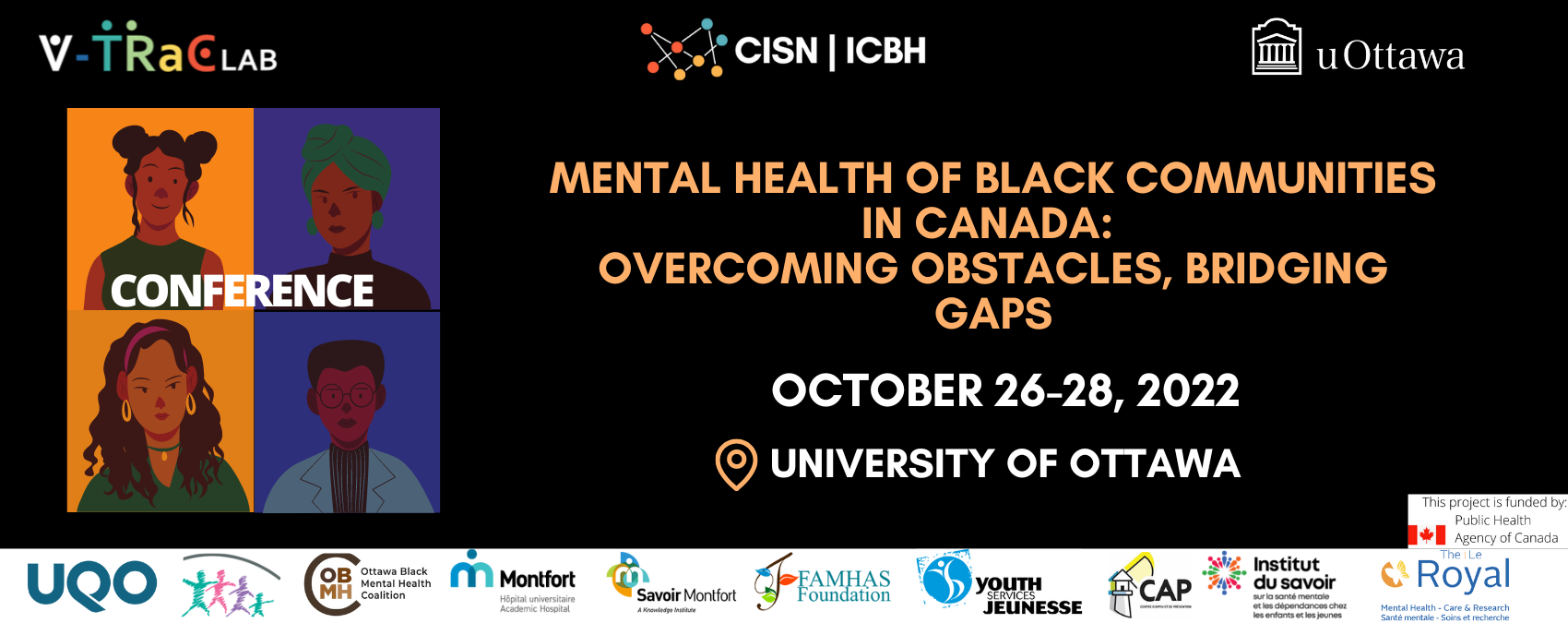
|
Home Page
Black Mental Health in Canada: Overcoming Obstacles, Bridging Gaps According to the 2016 General Census , Black communities represent 1.2 million people in Canada (Maheux & Do, 2019). These communities face a range of social and economic inequities and racial issues that can affect their well-being and mental health (Abdillahi & Shaw, 2020). The systemic inequities experienced by Black people surround difficult living conditions, including those regarding housing, employment (unemployment, underemployment, job insecurity), income, food insecurity, education, and access to health care (Do et al., 2020; Randle et al., 2021).In addition, Black people face high rates of various forms of racial discrimination (e.g., profiling, microaggressions), social exclusion, early adversities, traumatic events, as well as difficult migration experiences and intergenerational traumas (Cénat, Hajizadeh, et al., 2021; Godley, 2018). A recent study of Black individuals ages 15-40 found that over 60% of Black individuals experienced various forms of racial discrimination on a monthly basis (Cénat, Hajizadeh, et al., 2021). These interacting and cumulative factors are detrimental to the health and well-being of Black individuals (Cénat, Hajizadeh, et al., 2021). Evidence from the Black Communities Mental Health Survey in Canada (BCoMHeal) indicates that Black people who have experienced the highest level of daily racial discrimination are 36 times more likely to experience severe symptoms of depression (Cénat, Kogan, et al., 2021). Those who have experienced various forms of racial discrimination are also more likely to experience severe symptoms of anxiety, post-traumatic stress disorder, suicidal ideations and behaviours, low self-esteem, low quality of life, and substance abuse. These findings corroborate those of other studies conducted over several decades now in Canada and the United States that have shown that racial discrimination negatively impacts the mental and physical health of Black people, as well as other racialized people (Levine et al., 2014; Lo et al., 2012; R. J. Taylor et al., 2019; Williams & Williams-Morris, 2000). Tragic events in recent years such as the death of George Floyd, the Black Lives Matter movement, and the disparities related to the COVID-19 pandemic have only highlighted the longstanding inequalities and discriminatory experiences faced by Black and racialized people (Miconi et al., 2021). These issues have led the scientific community to focus on the ways in which social and racial inequities manifest and affect the mental health of Black communities (Abdillahi & Shaw, 2020; Giwa et al., 2020; Miconi et al., 2021). Mental health services in Canada are primarily organized using a colour-blind approach when assessing the accessibility and quality of services. This results in a lack of awareness, documentation and understanding of cultural and racial factors that affect access, delivery, and effectiveness of mental health services. Worse still, research has uncovered that a majority of people from Black and other racialized communities have reported experiencing racial discrimination in health services and hospitals (Cénat, Hajizadeh, et al., 2021). For example, results from the BCoMHeal survey found that more than 53% of Black people reported experiencing major racial discrimination in health services (Cénat, Hajizadeh, et al., 2021). These findings confirm those of other Canadian and U.S. studies conducted among Black people who have received care for cancer, high blood pressure, diabetes, HIV, psychosis, maternal health, and also for in mental health care (Gagné & Veenstra, 2017; Nelson et al., 2019; Stern et al., 2021; D. Taylor & Richards, 2019; Veenstra, 2012). These experiences of discrimination in health services and social determinants cited above and culturally inappropriate training of mental health professionals associated with culturally inappropriate care result in underutilization of mental health services by individuals from Black communities (Cénat, 2022; Cénat, 2020; Fante-Coleman & Jackson-Best, 2020). In response to the ongoing challenges described above, we are organizing a conference on the mental health of people from Black communities in Canada on October 26-28, 2022, to provide an opportunity for researchers, practitioners, community organizations and leaders, health care managers and people with lived experience to come together to share knowledge, experiences, innovations in assessment and intervention approaches, and expertise to address barriers and gaps in mental health care for Black people in Canada. The main three themes of the conference are:
*This conference is open to everyone (researchers, practitioners, community organizations and leaders, general population....).* |

